(Cover photo credit: Eneada, DeviantArt)
Introduction
Everyone who has ever played a game of chess on the Internet knows that there is a major problem is plaguing the chess world.
Cheating in chess. 1
Every now and then, we all run into someone who doesn’t have official FIDE rating, plays suspicious openings, moves every 3-5 seconds in regular intervals and crushes us mercilessly. Unfortunately, in the past, even strong grandmasters like Arkadij Naiditsch, Tal Baron or Timur Gareyev have been caught ‘in flagranti’ 2 in various online tournaments.
However, the real problem is that cheating is not only restricted to online chess. It is also an issue in over-the-board events. Where not only online rating and ego, but also monetary gains, play an important role 3
Even though cheating in chess has been present throughout chess history, things escalated in the 21st century. Due to the technological advance and the appearance of the computer chess engines, today every amateur is capable of beating a grandmaster. In recent years there has been an astounding number of notable and less notable cases of players cheating and getting caught.
And probably a myriad of others getting away with it.
That is why I think it is important to raise awareness. In this article, I am going to take the reader on a journey through the history of cheating in chess. We will take a look at some famous and less famous examples of chess cheaters. Then we will examine what FIDE is doing in terms of anti-cheating measures. Finally, I will wrap everything up with a couple of my own thoughts on what can be done to fight against cheating more successfully.
The definition of cheating in chess
Even though we all intuitively know it, perhaps it is worth formally defining what cheating in chess is. According to the article 11.1 of FIDE Laws of Chess Handbook:
The players shall take no action that will bring the game of chess into disrepute.
At first, it is not entirely clear whether ‘bringing the game of chess into disrepute’ is the same as ‘cheating’. Talking to your opponent is formally forbidden, but there are numerous humorous anecdotes from the chess history where even great chess players violated this rule (for example, Efim Petrovich Geller saying „All the same you won’t win against me“ after his opponent declined his draw offer in an important last round of a tournament). 4 Surely, this can’t be in the same category as using the engine during the game.
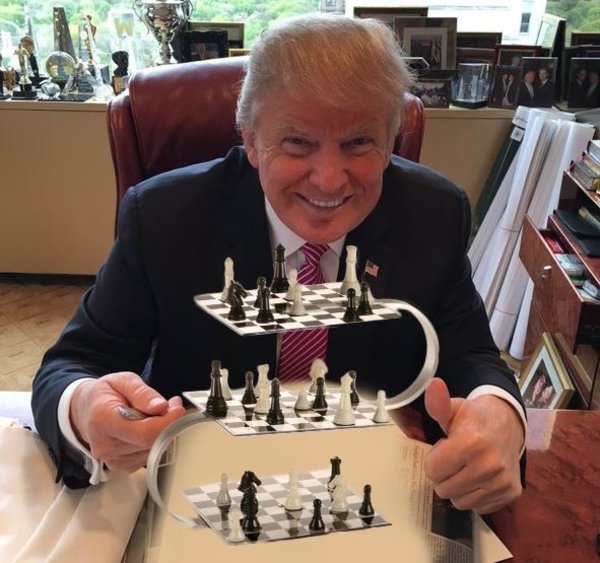
That is why I would like to define cheating in chess as:
Intentional, unethical or manipulative behaviour that violates the official rules
of the game and has a DECISIVE impact on the outcome of a the game.
As much as talking to your opponent might be rude, in the MAJORITY of cases it doesn’t have a decisive impact on the game. 5
Traditional ways of cheating in chess
Unfortunately, ‘bringing the game of chess into disrepute’ is almost as old as the game itself. According to various sources, the earliest example happened in the 11th century, when King Canute the Great tried to return a captured piece to the board in a game against his brother-in-law, the Earl of Ulf.
In the article about the history of the computer chess engines, also mentioned the 18th-century case – the first chess-playing automaton the Turk, which proved to be a major hoax, since it contained a human hidden inside that actually made the moves.
However, if we disregard a couple of other examples, cheating in chess only proliferated in the 20th century. Even before the rise of the computer, there were several creating ways of „bending the rules“. The three most common were:
-
Collusion
Collusion is – most simply – result fixing. It most often comes in the form of a „prearranged draw“. When taken to the extreme, it includes losing the game intentionally.
Historically, the most famous incident connected with collusion was the 1962 Candidates tournament in Curacao. After the tournament, Bobby Fischer published an article in Sports Illustrated titled „The Russians Have Fixed World Chess“ 6 in which he accused the Soviet players of prearranging draws in their mutual games.
Unfortunately, this is not an exception, but rather the beginning of a „rule“. Collusion – especially in forms of prearranged draws – is considered as something quite normal – an integral part of broader chess culture. This is what IM Greg Shahade wrote on the topic in 2011:
“prearrangement of results is extremely commonplace, even at the highest levels of chess. This especially holds true for draws… There is a bit of a code of silence at the top levels of chess.”
Collusion is a particularly big problem in the last rounds of Open tournaments. Players who have nothing to gain before the last round are often prone to „giving up prematurely“. Especially if their opponent has chances to win some money and is willing to „cover the expenses“.
Or if they need a win for a title or some other benefit. One shocking example is the last round game from the American Open 2006 between De Guzman and Kreiman. The latter needed to win in order to qualify for the US closed championship and he beat his IM opponent in remarkable fashion:
Even though the Swiss system „incentivizes“ people do behave like this 7, collusion also happens in closed events. Regular readers might remember I have lamented about quick draws in Croatian Championships. They are also present in top events – although novelties like Sofia rules help to reduce their number.
-
Sandbagging
Another ‘ancient’ way of cheating in chess still present today is sandbagging – the process of intentionally lowering one’s rating. It may or may not involve collusion as well – the sandbagger might choose to prearrange the game. But more often than not, the sandbagger acts independently and intentionally loses (or draws) rated tournament games.
The reader might wonder why on Earth would anyone to this? Well, almost every self-respectable chess tournament has special prizes divided by rating categories. If you are a former 2300 rated player who dropped his rating all the way to 2199, you have a very good chance of winning the prizes for the best under-2200 rated player.
-
False tournament reports
In the chess world, it is a public secret that in certain closed Norm tournaments, some titled players get ‘incentives’ to perform below their level and help young promising talents (who paid a decent entry fee) on their path toward the desired title.
However, even worse than those suspicious tournaments that were actually played are suspicious tournaments that probably weren’t played at all. Throughout the chess history, a number of false tournament reports made its way to FIDE, but two, in particular, have become rather famous.
In 2001, Romanian Grandmaster Alexandru Crisan was accused of faking his Elo rating of 2635 (number 33 in the world) by fixing chess matches for his own benefit and falsifying chess tournament results. FIDE later stripped him of his GM title and his top 50 world ranking.
Even more interesting is the case of prominent FIDE official and former Kasparov’s second, Zurab Azmaiparashvili. According to some sources, in the tournament in Strumica 1995, which he won by a huge margin, not a single move was actually played over-the-board. Evgeny Sveshnikov even wrote that Zurab ‘bought the whole tournament’.
-
Touch-move rule
Since we mentioned Zurab Azmaiparahsvili… Strumica 1995 was not the only instance where he was in the center of controversy. The second incident was his violation of the touch-move rule from the last round of the 2003 European Championship.
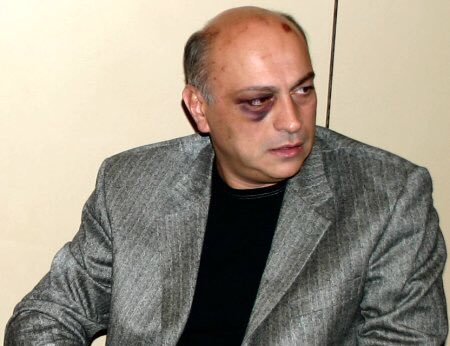
Zurab was playing against Vladimir Malakhov in a decisive game – the winner would become the champion. In a favorable position, on move 25, he made a bishop move, leaving his rook hanging. He immediately returned the move, made the rook exchange first… and duly won the game:
Genna Sosonko wrote about the incident in his book Smart Chip from St. Petersburg:
Grandmasters were fighting for the lead, and the encounter had huge sporting significance. In an ending that was favourable to him, Azmai[parashvili] picked up the bishop, intending to make a move with it instead of first exchanging rooks. Malakhov recalled: “Seeing that the rooks were still on the board, he said something like, ‘Oh, first the exchange, of course.’ put his bishop back, took my rook, and the game continued. I don’t know what should have been done differently in this situation—in Azmai’s place, some might have resigned immediately, and in my place, some would have demanded that he make a move with his bishop but I didn’t want to ruin the logical development of the duel, so I didn’t object when Azmai made a different move: the mistake was obviously nothing to do with chess! When we signed the score sheets, Azmai suggested to me that we consider the game a draw. After the game I was left with an unpleasant aftertaste, but that was due mainly to my own play.
Of course, this was not the only instance in history where a strong player violated this basic rule. The greatest player of all time violated it at least twice in his career. The first time it happened against Judit Polgar in highly publicized incident:
https://www.youtube.com/watch?v=P1l-ARsNTHI
The second time it happened during his return to chess in Saint Louis in 2017, although Nakamura let him get away with it:
On the other hand, Nakamura himself was not as lucky during the Candidates tournament 2016:
Computer cheating in chess
As we have seen, even before the appearance of the chess computer engines, cheating in chess did exist. However, it wasn’t such a huge problem – the number of cases wasn’t so big and it wasn’t available to everyone (not every amateur could, for example, falsify the entire tournament).
Alas, the development of technology completely changed the landscape. The moment the first chess engine became available on a mobile phone, every amateur became ‘stronger’ than the average grandmaster. Cheating became so easy that many players found it hard to resist the temptation. Over the last couple of years, the number of cases of cheating in chess has grown exponentially. A number of them have been highly publicized, which is not surprising considering that even a couple of grandmasters “joined the Dark side”.
Let’s take a look at some famous examples of computer cheating in chess.
Famous examples of computer cheating in chess
- John Von Neumann
The very first example of using engine assistance in an actual tournament had something romantic to it. During the 1993 World Open in Philadelphia, a completely unknown guy under the name John Von Neumann (sharing a name with the famous computer scientist) player fantastic chess, drew against a Grandmaster and won the prize in the unrated player category.
Before they handed him the prize, the organizers asked him to solve elementary chess puzzles. Von Neumann promptly refused, left the hall and never reappeared ever since.
- Clemens Allwermann
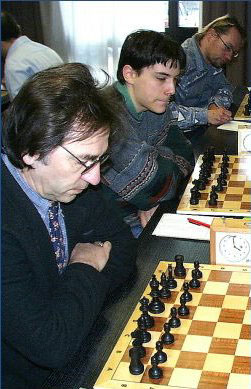
The more serious case happened during the 1999 Böblinger Open. A 55-year old player, Clemens Allwermann, shocked the chess world by winning the strong open ahead of a dozen of IMs and GMs, scoring 7.5/9 – a 2630 performance. According to a Chessbase article, his case even generated interest among the best players in the world, who had little doubt he was using the engine assistance.
Even though the whole world suspected him, his case revealed one difficulty when dealing with cheaters – nothing could have been proven. In the end, he was allowed to play in one tournament, where he was watched closely. After he performed in the 2000s levels, the Bavarian Chess Federation banned him from participating in subsequent tournaments.
- Borislav Ivanov
In 2012, during the Zadar open tournament held in my home country, a hitherto unknown Bulgarian player Borislav Ivanov, rated 2227, shocked the chess world by finishing fourth after beating several grandmasters and scoring 6/9 with a 2700 rating performance.
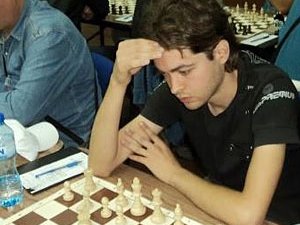
Ivanov caused a major uproar in the chess community, especially after another brilliant performance in Kyustendil Open 2013. Video analysis of his games was made, players protested and the Bulgarian Chess Federation suspended him. But no one was able to provide a definite proof that he was cheating.
After a legal battle with the Bulgarian Federation, the ban was lifted, but no tournament organizer was happy when Ivanov appeared in his hall. Due to constant suspicion and repetitive searches, Ivanov announced his retirement for chess.
Even though the analysis of his games leaves no room for doubt, the chess world still wonders how exactly he managed to pull it off.
- French Olympiad Team
Alas, none of the previous (nor subsequent) examples can be compared with the most famous example of cheating in chess which occurred during the Chess Olympiad (!) in Khanty Mansysk back in 2010.
Two members of the French team – Grandmaster Sebastian Feller and International Master Cyril Marzolo, in cooperation with their team captain Arnaud Hauchard, devised a devious cheating scheme: Marzolo would analyze the games at the remote chess computer and send the moves via SMS to Hauchard 8, who then transmitted them using specially coded signals to Feller. It allowed the latter to beat the strong English Grandmaster David Howell in a brilliant fashion (as a result, France drew the match):
The fraud was discovered when the owner of the phone (which Marzolo borrowed) saw a suspicious message. As a result, Feller was banned for 2 years and 9 months, Marzolo for 1 year and 6 months, while Hauchard was forbidden to captain a team for 3 years.
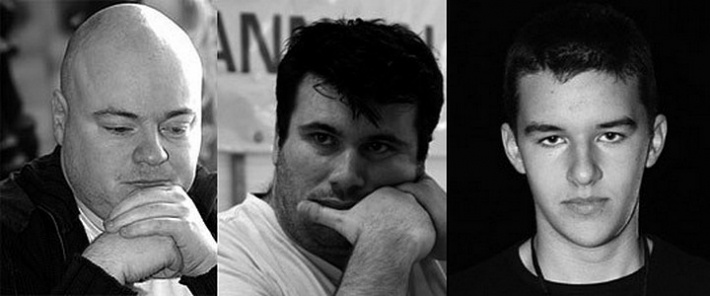
It has to be said that this example brought a lot of negative publicity to chess. Even a respectable publication as The Guardian wrote a report about the incident.
- Gaios Nigalidze
Unfortunately, it seems that Sebastian Feller was not an exception, but rather the rule itselfwhen it comes to Grandmasters cheating. The case of GM Gaios Nigalidze was no less disappointing.
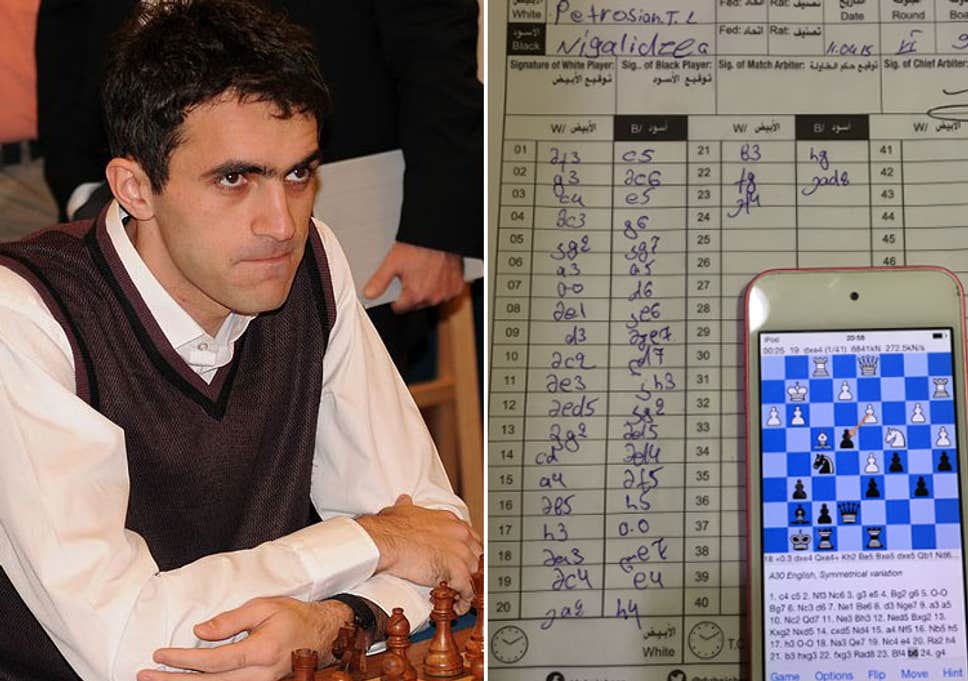
During a game against Tigran L. Petrosian 9 in Dubai Open 2014, Nigaidze repeatedly kept going to the same toilet cabin. Petrosian, who suspected his opponent from the previous tournament where they played together (Al Ain – which Nigalidze won), reported this behavior to the arbiter, who followed Nigalidze, waited for him to leave the cabin and then found a phone with the game position (and Nigalidze’s social media accounts).
As a result, he was expelled from the tournament, ban from playing chess for three years and stripped of his GM title.
- Igors Rausis
Last, but not least, the most recent example of a Grandmaster caught cheating is the case of Igors Rausis. I have provided an in-depth account in this Quora answer, 10 but in a nutshell – Rausis was a 2500 player for almost two decades. Then suddenly, beginning approximately in 2013 – at the age of 50 – he started improving slowly, but steadily. In the subsequent 6 years, he gained almost 200 rating points and came on the verge of the 2700 club (2694 live, which made him #41 in the world!).

Even though he cheated wiser than the other guys, playing only in low-profile tournaments and seemingly exploiting the 400 rating rule, 11 he did come under suspicion. During the Strasbourg Open 2019, he was caught on camera cheating on the toilet. 12 He himself said he has already played his last chess game.
It has to be mentioned that Rausis’ case was also featured in mainstream media.
How to prevent cheating in chess?
So far in this article, we have looked at various ways of cheating in chess and highlighted some famous examples. With that in mind, a logical follow-up question arises: How exactly can we prevent cheating in chess? What exactly is FIDE doing?
As usual in life, I have some good news and some bad news. The good news is that the situation is much better than some 10 years ago. You can see from this Chessbase article that the problem was neglected for a long time – even in 2011, a special proposal had to be issued. It would appear much has changed since. Starting from 2014, FIDE has an anti-cheating Guidelines and an Anti-Cheating committee. Anti-cheating measures are increasing – especially in FIDE organized events. And – as Rausis’ case shows – they do track potential suspects and act when an opportunity arises.
It is comforting to know that a number of cheaters is caught eventually.
Unfortunately, there are some bad news. First of all, even when cheaters are eventually caught, they do get away with it for a long period of time. As Rausis case showed, it took them around 6 years to set him a deadly trap. Who knows how many prizes he collected, how many rating points he took from his opponents in that period.
Secondly, I still think there is a number of tournaments (like those Rausis chose) where anti-cheating measures leave much to be desired. I think it could be “easily” solved if every national federation invested into several anti-electronic doors and then circulated them between the tournaments organized under their jurisdiction.
Thirdly and more imporantly, I think cheating in chess is one of those rare cases where it would be better to focus on the consequence rather than the cause. In every single example I mentioned, I feel that the punishment was too small. A 3-year-ban for Feller for cheating during the Olympiad. A 3-year-ban for Nigalidze who had just won an 11.000 dollars prize in the previous tournament.
Even more ridiculous is the case of Gabriel Mirza, who suspected his opponent was cheating at the 2013 Cork Congress Open, confronted him in the toilet, assaulted the cubicle and found the smartphone. For violent conduct, Mirza was banned for 10 months. His opponent. A cheater. For 4.
If the punishment for cheating was more draconic, many potential cheaters would be discouraged. Just like Croatian BMW drivers would be more careful about their driving if the first one who killed someone ended up in jail for 15 years, chess players would think twice if the duration of the ban was doubled. And if big fines for cheaters were introduced.
In general, I believe, that responsibility and accountability are what shape the moral framework of a tribe (or a society as a whole). I completely agree with the following statement from a fantastic book Righteous Mind: Why Good People are Divided by Politics and Religion by Jonathan Haidt:
Punishing bad behavior promotes virtue and benefits the group. And just as Glaucon argued in his ring of Gyges example, when the threat of punishment is removed, people behave selfishly.
I, therefore, firmly believe that the most reliable way of preventing cases like that in the future is a shift toward more radical nipping future attempts in the bud before they even materialize.
Conclusion
To conclude, I think cheating in chess is a major problem that is plaguing our sport. 13 I think it is one of the greatest threats to its integrity. The reason I am so vocal when it comes to this topic is my belief that, if we don’t take cheating even more seriously, chess might end up as cycling – corrupt, uninteresting to sponsors and not taken seriously by anyone.
I, therefore, celebrate every day when a cheater like Rausis, Nigalidze or Feller gets caught. And I hope to see many more of them caught (and punished appropriately) in the future.
References and further reading
http://www.chessmaniac.com/cheating-and-chess/
http://billwall.phpwebhosting.com/articles/Cheating%20and%20chess.htm
https://en.chessbase.com/post/a-history-of-cheating-in-che-2
https://en.chessbase.com/post/a-history-of-cheating-in-che-3-
https://en.chessbase.com/post/nigalidze-stripped-of-gm-title-receives-3-year-ban
https://en.wikipedia.org/wiki/Cheating_in_chess
https://en.wikipedia.org/wiki/Borislav_Ivanov
https://en.chessbase.com/post/dubai-fedoseev-shabalov-lead-after-seven-rounds
https://en.chessbase.com/portals/4/files/news/2011/FIDE03_cheating.pdf
https://en.chessbase.com/post/cheating-in-che-the-problem-won-t-go-away
https://www.fide.com/FIDE/handbook/B06annex6.pdf
- If your answer was ‘The London System’, score bonus points
- No, using the Latin expression was not strictly necessary, but how else would you know what kind of a pretentious git the author of this article is?
- Although, as Tal Baron’s case showed, money can be earned on the Internet, as well. But most of the cheaters on the Internet don’t have direct monetary benefits. Besides, events with serious cash prizes are still not that common
- I first read it in Genna Sosonko’s book Russian Sillhouettes
- As long as your opponent doesn’t over do it, of course. One sentence didn’t kill anybody. One hour monologue is not appropriate – and not only during the game. Seriously, could we all just shut up and listen?
- Currently unavailable, though
- according to this Chessninja article
- The non-playing captain
- Not THAT Petrosian
- And in this Youtube video
- which states that if a difference between two opponents is > 400 points, the result of the game is calculated as if they are exactly 400. Meaning that if a 2500 GM beats a 1700 opponent, it counts as if he beat a 2100 opponent.
- According to some sources, FIDE officials put the camera and turned it on when he entered the bathroom. It is probably borderline legal, but considering the reward, I think the risk was worth it.
- Okay, okay. If I were consistent I would have written “sport”! But everyone who has seen my rating graph knows what kind of consistency he can expect from me, right?


Thank you for this informative article. I’ve fought online cheating for many years myself, and I agree that the sanctions should be more dissuasive. As for many other walks of life, it’s about setting priorities.